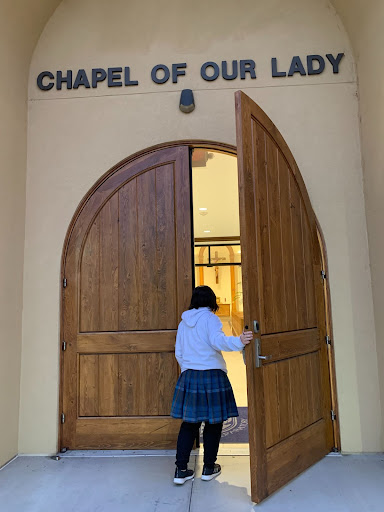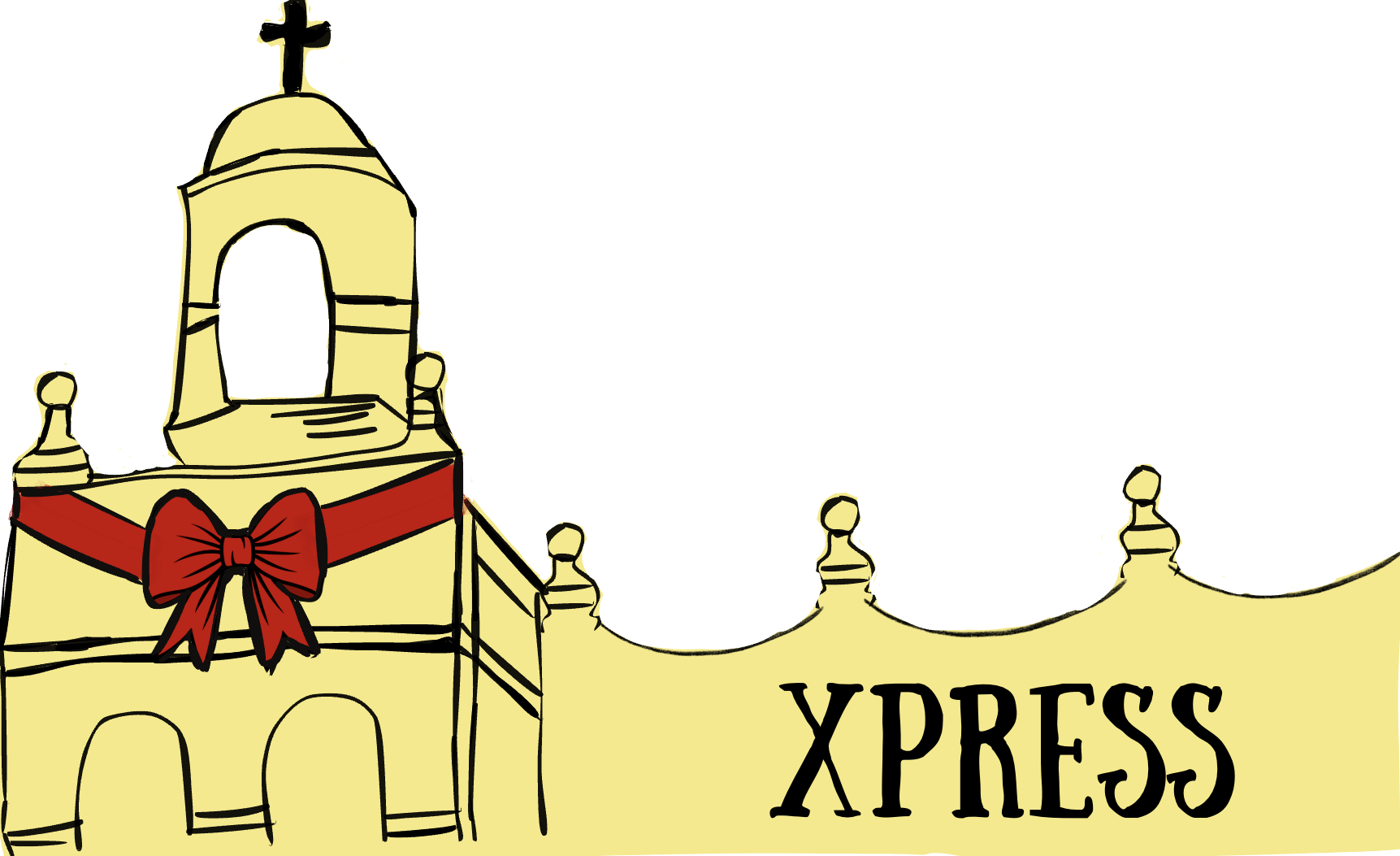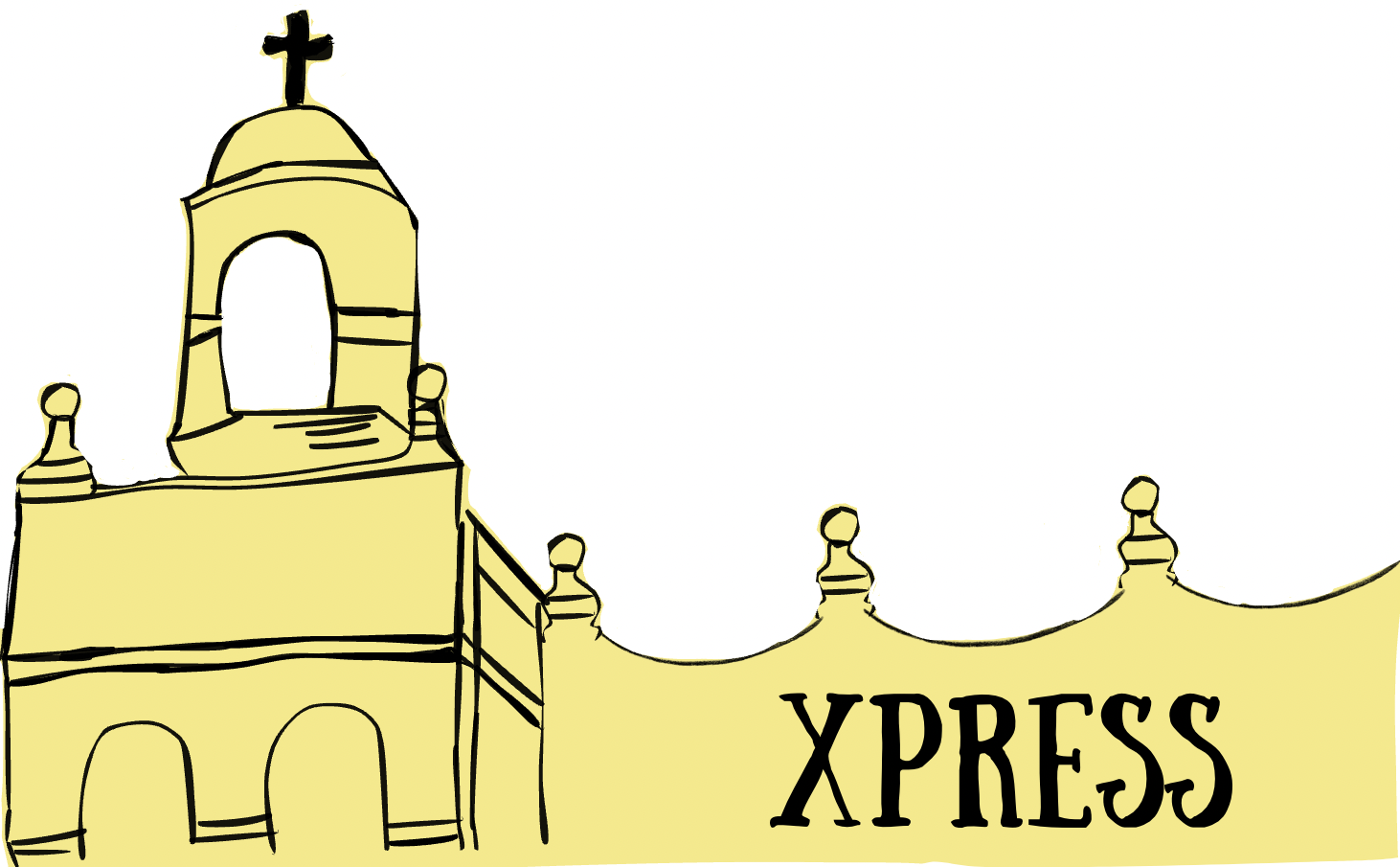Discernment: Gators find their vocations

Olivia Fisko ‘25 enacts a morning scene of walking into The Chapel of Our Lady. Daily Masses are held there on Xavier’s campus, allowing students to sit quietly with God and listen to His call.
“My vocation, at last I have found it; my vocation is love.” These words from St. Therese of Lisieux inspire Catholics around the world to search for their vocations and callings to the Church.
At Xavier, students experience various events centered around the Catholic faith. From class prayer days to monthly Masses, students get a glimpse of what it means to be a part of the Church.
Vocational Discernment is recognizing God’s calling to do service in the world. But this calling can sometimes be hidden. For Xavier students, one question remains: How do I know where I’m being called and what I’m being called to do?
Brianne Sanford Pennington, assistant campus minister at Xavier, says, “God uses our desires to lead us to our futures.” Students can use this advice to learn to trust God to guide them towards their callings in the Church. “Our vocation is to be holy,” Sanford said.
For students, hearing God’s call can be challenging, especially with the distractions of social media and other worldly items. “Growing in your relationship with Jesus and coming to know Him more, coming to know yourself more [allows] God to reveal certain desires in your heart,” said Sanford.
Xavier students are encouraged to ask questions about their faith, especially when it comes to their futures in the Church. Sister Joan Fitzgerald, president of Xavier, says students should ask questions such as, “What is God calling me to do” and “do the sacraments have meaning [to me].”
There are multiple forms of vocations in the Church, such as consecrated religious or single life, priesthood or sisterhood, and marriage. However, there are other ways to spread God’s word into the community.
Danielle Burr, a theology teacher at Xavier, says, “The key is knowing what you’re good at and what you’re passionate about, and allowing God to show you the rest.”
Recognizing the gifts God has given them allows students to answer God’s call and serve His people.
In a similar way, spending time with God, whether it be through prayer or reading the gospels, is essential to discerning one’s calling in the Church. “Discernment requires silence and openness,” added Fitzgerald.
At Xavier, not every student is Catholic or a part of a faith, making discernment more challenging and confusing. Burr says, “The Holy Spirit often guides us to places we don’t expect.”
Students can ask family members and friends who are a part of the Church, “Why are they a part of the Church?” Fitzgerald encourages students to listen in their theology classes and ask, “Does it speak to my heart” and “does it speak to my values?”
Fitzgerald, Sanford and Burr hint that finding peace helps find joy in their callings, and they urge students to ask, “Is what you’re doing bringing you peace?”
Through teachers, family, friends and saints, students can learn to discern God’s calling and live it out through their lives.



